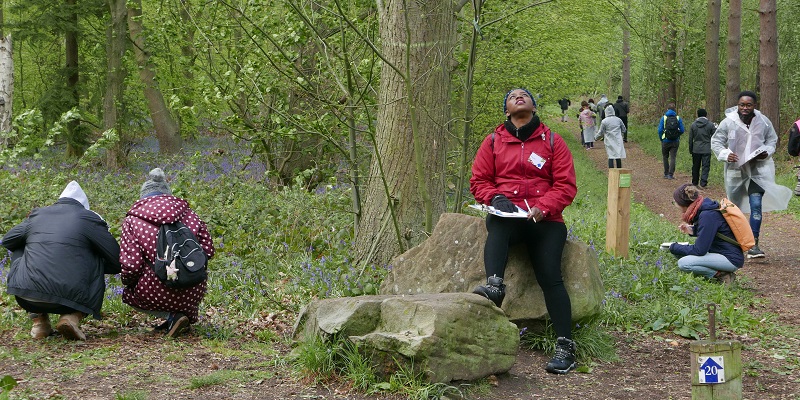New research has revealed for the first time that well-functioning ecosystems are crucial to human health and wellbeing.
The study, published in Nature Sustainability, suggests that the interactions between humans and biodiversity deliver wellbeing benefits that could results in substantial healthcare cost-savings when scaled-up across populations.
A team of UK scientists, which included Professor Martin Dallimer from the University of Leeds, set out to understand which components of nature and biodiversity played a particular role in human wellbeing.
Based on people's feedback following a series of workshops, the team analysed the effects of species' traits and identified those that generate different types of wellbeing. These types of wellbeing included physical, emotional, cognitive, social, spiritual, and 'global' — the latter referring to 'whole-person health'.
The team, led by Professor Zoe Davies from the University of Kent, found that, in general, the vast majority of species and traits are beneficial to human wellbeing. They also discovered that each species may support multiple traits, potentially with different impacts.
For example, the colours of brambles (black, pink, red) are linked to multiple positive physical, emotional and social wellbeing types, but their prickly texture generated negative emotional wellbeing.
The numerous traits from across an ecological community can elicit a multitude of wellbeing responses, illustrating the true complexity of how people relate to biodiversity.
Martin Dallimer, Professor in Environmental Change from the School of Earth and Environment at Leeds, said: "For the first time, through analysing people's own words and reflections, we are able to explicitly link that feeling of wellbeing with species and their traits.
"How people respond to biodiversity is hugely varied and if we want people's wellbeing to benefit from spending time in nature, then it is essential to make sure we are maintaining and restoring high quality biodiverse spaces for wildlife and for people.
"Our aim is that these findings really drive home how important biodiversity is in underpinning wellbeing benefits, particularly to healthcare and public sectors who include 'spending time in nature' as an element of mental health and wellbeing."

Professor Davies, a biodiversity conservationist at Kent's Durrell Institute of Conservation and Ecology (DICE), said: "While we know that spending time in natural environments can improve our health and wellbeing, we still need to know more about which species, or traits of species (such as colours, sounds, smells, textures and behaviours), deliver these benefits – and how people's relationships with biodiversity are both contextually and culturally specific."
The team argue that understanding how people experience biodiversity is key to successfully managing biodiversity to facilitate human wellbeing.'
Dr Jessica Fisher, also from DICE, added: "By starting to comprehend how people experience biodiversity, we can begin to manage our natural environments for both biodiversity conservation and human health. Even small improvements in wellbeing at an individual level could scale up to substantial healthcare cost savings across an entire country."
"Our approach can be used to create better-tailored public health interventions or architectural/landscape designs by, for example, maximising the likelihood of people having interactions with certain species and their traits.
"Critically, as each additional species in an ecological community supports additional traits, maintaining or enhancing biodiversity will be key to delivering human wellbeing."






